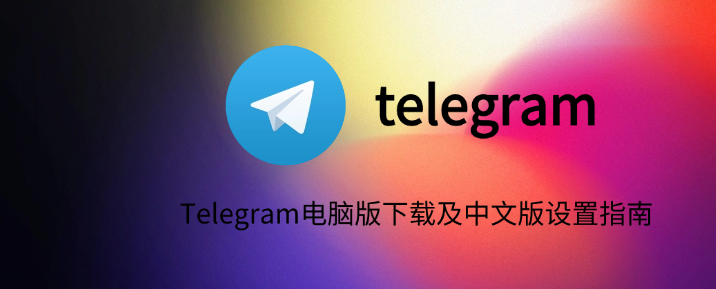In the fast-evolving world of messaging apps, Telegram电脑版 has carved a distinct niche as a platform that prioritizes user privacy, security, and customization. Launched in 2013 by Pavel and Nikolai Durov, the Russian brothers behind VKontakte (Russia’s largest social network), Telegram has grown into one of the most popular messaging apps globally, with over 700 million active users as of 2024. But what exactly makes Telegram stand out in a crowded marketplace dominated by WhatsApp, Facebook Messenger, and others?
A Focus on Privacy and Security
Telegram’s commitment to privacy and security has been its defining characteristic since day one. The app offers end-to-end encryption for one-on-one chats, meaning that only the sender and recipient can read the messages. Telegram’s “Secret Chats” take this a step further, using encryption keys that are only stored on the devices involved, not on Telegram’s servers.
One of Telegram’s most innovative security features is its “self-destructing messages.” Users can set a timer on messages, after which they will disappear from both the sender’s and the recipient’s devices, ensuring that sensitive information remains private.
Furthermore, Telegram is known for not selling user data to advertisers, a feature that distinguishes it from many other free services, which monetize through data collection and targeted ads. This level of transparency has earned Telegram a loyal following, especially among users who are concerned about digital surveillance and data mining.
Group Chats and Channels: Beyond Messaging
Telegram’s versatility goes beyond just personal messaging. One of its most powerful features is its support for large group chats and channels. Groups can support up to 200,000 members, making them an invaluable tool for communities, businesses, and even political movements. Group admins have full control over permissions, ensuring that the group remains organized and secure.
Channels, on the other hand, allow users to broadcast messages to an unlimited number of subscribers. This feature has become a crucial tool for media organizations, influencers, and brands looking to engage with a large audience. Unlike groups, channels are one-way communication platforms, where only admins can post, but members can follow updates on a broad range of topics, from global news to niche interests.
The ability to share multimedia such as images, videos, voice messages, and even files of up to 2GB each adds to Telegram’s appeal as an all-in-one communication platform. The seamless integration of bots allows users to automate tasks, create polls, and even conduct surveys within groups and channels, further expanding its capabilities.
Customization and User Experience
Telegram offers a high degree of customization, which is something many users appreciate. The app allows users to change themes, adjust chat bubble colors, and choose from a wide range of stickers and emojis. Telegram’s open-source nature means that developers can create custom bots and third-party integrations, further enhancing the app’s functionality.
For power users, Telegram’s desktop and web versions make it easy to stay connected across multiple devices. The synchronization between devices is seamless, ensuring that conversations and media are instantly available across phones, tablets, and computers.
Telegram in Political and Social Movements
Telegram’s reputation for security and privacy has made it a platform of choice for activists and political movements worldwide. Its resistance to censorship has allowed it to flourish in countries where other platforms are heavily monitored or blocked. During times of political unrest, Telegram has been used to organize protests, share information, and even circumvent government censorship efforts.
In countries like Iran, Belarus, and Hong Kong, Telegram channels have become crucial tools for dissidents and political activists. The platform’s ability to offer secure and anonymous communication has made it a symbol of digital freedom, a place where people can speak out without fear of government surveillance or retribution.
However, this has also drawn the attention of governments, with some accusing Telegram of facilitating the spread of extremism or illegal content. The app’s administrators have often been faced with tough decisions, balancing user privacy with legal demands for content moderation. Despite this, Telegram continues to advocate for free speech while taking steps to prevent abuse of its platform, such as introducing automated content moderation tools.
The Future of Telegram: What’s Next?
As Telegram continues to grow, its founders are determined to maintain its core values of privacy, security, and user control. Future updates are likely to focus on improving the app’s AI-driven features, enhancing bots, and integrating new ways for users to interact with content. With ongoing efforts to improve its infrastructure, Telegram aims to remain at the forefront of messaging apps, offering a faster, more secure, and user-centric experience.
Telegram’s popularity also hints at a broader shift in how people communicate in the digital age. As concerns over privacy and security grow, more users are turning to platforms like Telegram that provide encryption, control, and transparency. This trend is likely to shape the future of digital communication, with Telegram leading the charge.
Conclusion: Telegram’s Enduring Appeal
In a world increasingly concerned with data privacy and security, Telegram stands as a beacon for users seeking a more open, secure, and customizable communication platform. Whether for personal chats, large group discussions, or global information dissemination, Telegram offers a unique set of features that cater to a diverse audience. As it continues to evolve, its commitment to privacy, security, and user autonomy will likely keep it a key player in the world of messaging apps for years to come.


